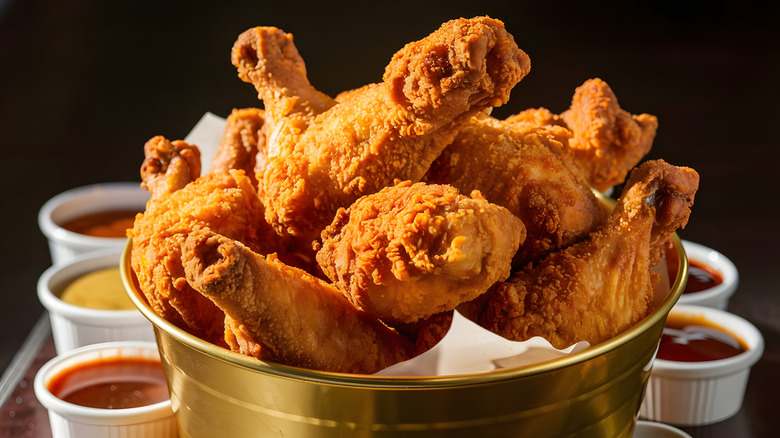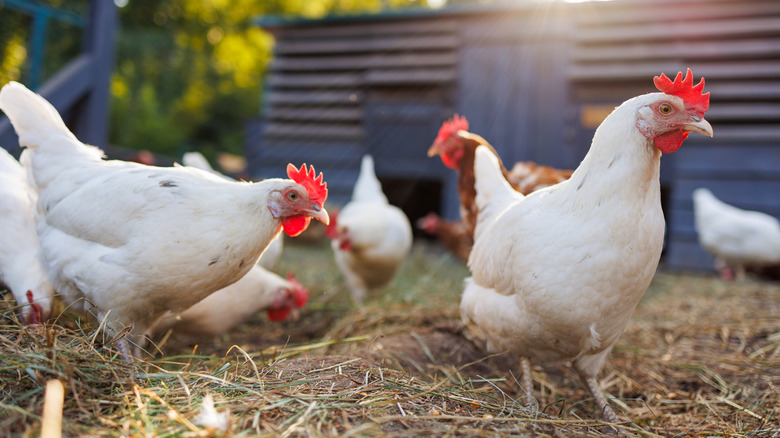Is Chicken Safe To Eat Right Now?
The bird flu outbreak has been getting attention lately, leaving customers concerned about the safety of consuming chicken or eggs. But while the outbreak is certainly affecting shoppers, its risks are not health-related for most consumers. As the name suggests, the bird flu is a strain of the influenza virus that affects mostly birds. It can spread to other animals (including humans), but unless you work in the dairy or poultry industry you're very likely safe from getting infected.
Since 2024, there have been 68 confirmed cases of humans being infected with the H5 bird flu virus. Of these, 41 cases were of people who worked with cattle, 23 were of people who worked with poultry, one was categorized as other animal exposure (from backyard animals, wild birds, or other animals), and three had untraceable sources. Bird flu works similar to other types of flu, meaning it's usually airborne or spread via bodily fluids like mucus, saliva, or excrement. Unless you're directly handling poultry or cattle, you probably aren't directly exposed to these fluids or to surfaces that might be infected by them.
For even more peace of mind, consumers will be glad to know that no case of someone getting the bird flu from consuming poultry meat (or other products, for that matter) has ever been recorded. If you're nervous about the outbreak, simply make sure to thoroughly cook your chicken, and to wash your hands after handling it.
Other things to know about the bird flu outbreak
If you're still feeling uneasy, there are a couple other things you can do. Consumers who buy farm-fresh eggs at farmers markets or from neighbors should wash their hands after touching the eggs and avoid touching their eyes or nose before washing. You can also err on the side of caution and give up runny yolks until the outbreak ends. Another step you can take is to not buy raw milk. Cows in multiple states have been infected by the bird flu, so untreated milk can be dangerous. In fact, California has opted to recall this product to lower the risk of human infection. It's also important for people who keep animals in their backyard to wear masks (the flu is an airborne virus) and wash their hands when handling their animals.
In general, however, most people don't need to worry about contracting the bird flu. The main problem the outbreak presents to consumers is that it's caused the death of an enormous number of chickens in industrial farms. This is no small part of why we have an ongoing egg shortage. An egg shortage which has driven the price of eggs through the roof and even caused certain grocery stores to put daily limits on how many eggs you can buy. In the end, the outbreak affects our pockets more than it does our health. So, if you can afford eggs and chicken, go ahead and savor them.

